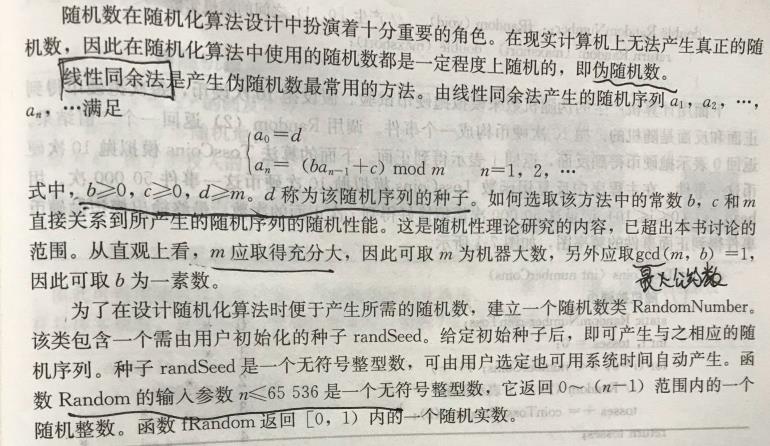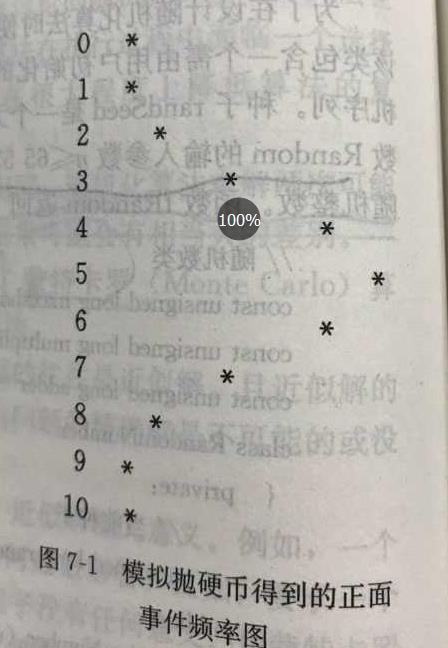随机化算法之随机数
Posted outthinker
tags:
篇首语:本文由小常识网(cha138.com)小编为大家整理,主要介绍了随机化算法之随机数相关的知识,希望对你有一定的参考价值。
首先是介绍:

代码如下:
//随机数类 //Random.hpp //===================================================== #ifndef RANDOM_HPP #define RANDOM_HPP #include<ctime> const unsigned long maxshort = 65536L; const unsigned long multiplier = 1194211693L; const unsigned long adder = 12345L; class RandomNumber{ private: //当前种子 unsigned long randSeed; public: RandomNumber(){}; RandomNumber(unsigned long s = 0); //构造函数,默认值0表示由系统自动产生种子 unsigned short Random(unsigned long n); //产生0:n-1之间的随机整数 double fRandom(void); //产生[0 , 1)之间的随机整数 }; RandomNumber::RandomNumber(unsigned long s) //产生种子 { if (s == 0) { randSeed = time(0); //使用系统时间产生随机种子 } else { randSeed = s; } } unsigned short RandomNumber::Random(unsigned long n) //产生 0:n-1之间的随机整数 { randSeed = multiplier * randSeed + adder; return(unsigned short)((randSeed >> 16) % n); } double RandomNumber::fRandom(void) //产生[0 , 1)之间的随机数 { return Random(maxshort) / double(maxshort); } #endif
//随机数 //main.cpp //============================================== #include <iostream> #include <iomanip> #include "Random.hpp" using namespace std; int TossCoins(int numberCoins) { //随机抛硬币 static RandomNumber coinToss(0); int tosses = 0; for (int i = 0; i < numberCoins; i++) { tosses += coinToss.Random(2); } return tosses; } int main(void) { //模拟随机抛硬币事件 const int NCOINS = 10; const long NTOSSES = 50000L; //heads[i]是得到i次正面的次数 long heads[NCOINS + 1]; int position; //初始化数组heads for (int i = 0; i < NCOINS + 1; i++) { heads[i] = 0; } //重复50000次试验 for (int j = 0; j < NTOSSES; j++) { heads[TossCoins(NCOINS)] ++; } //输出频率图 for (int i = 0; i < NCOINS; i++) { position = int(float(heads[i]) / NTOSSES * 72); cout << setw(6) << i << " "; for (int j = 0; j < position - 1; j++) { cout << " "; } cout << "*" << endl; } system("pause"); }
结果如下(频率图):

以上是关于随机化算法之随机数的主要内容,如果未能解决你的问题,请参考以下文章